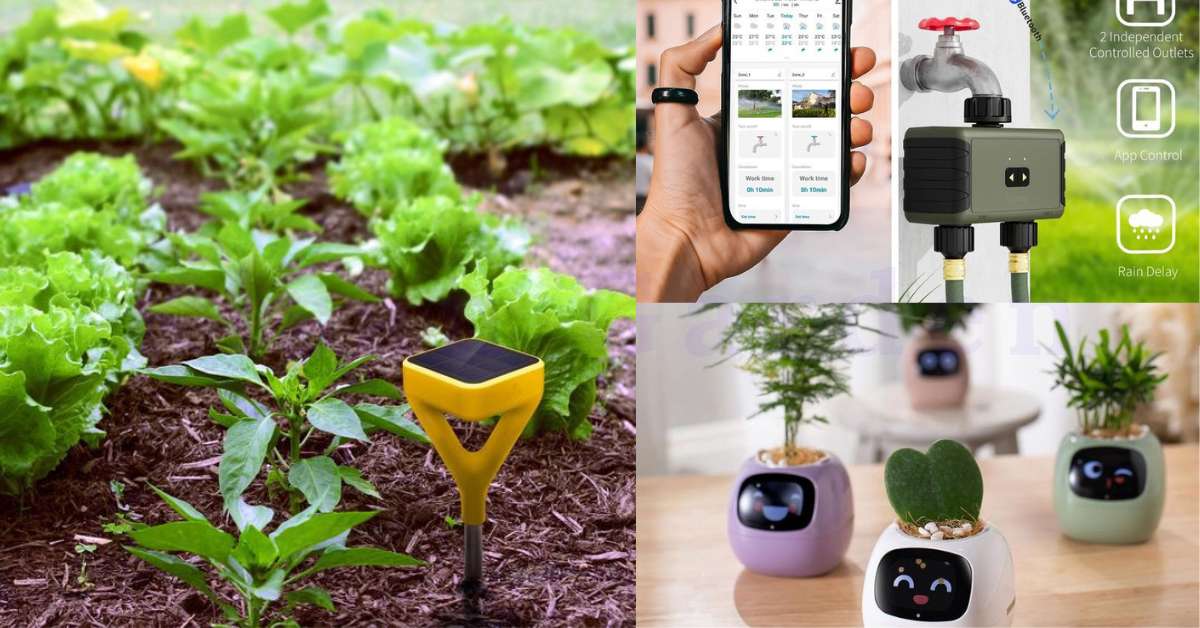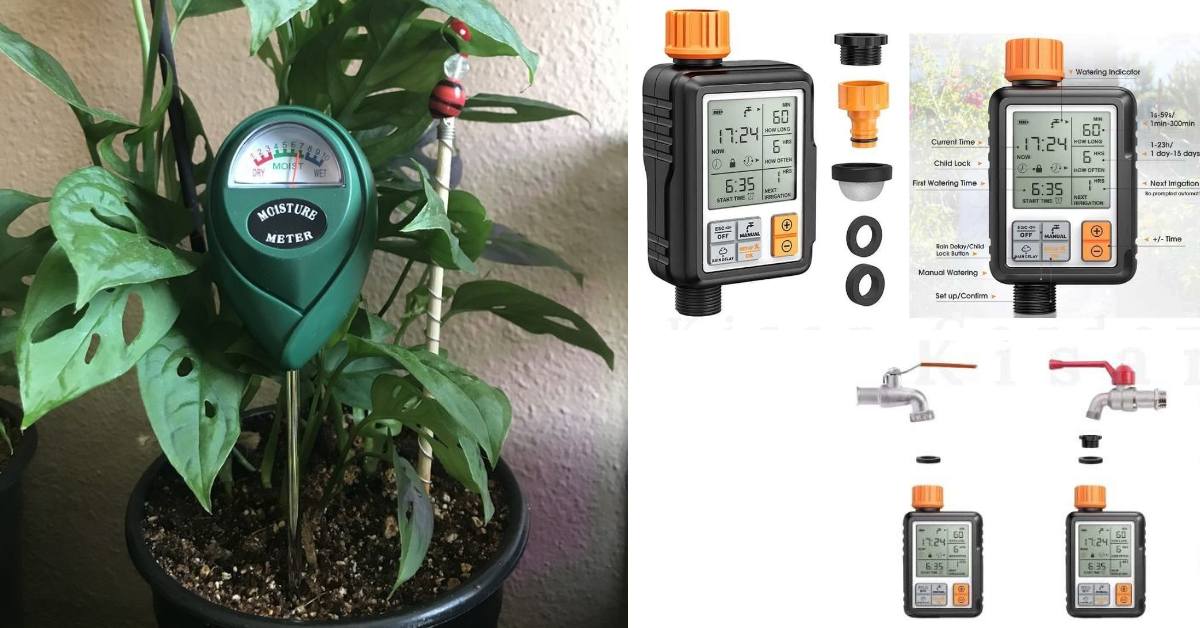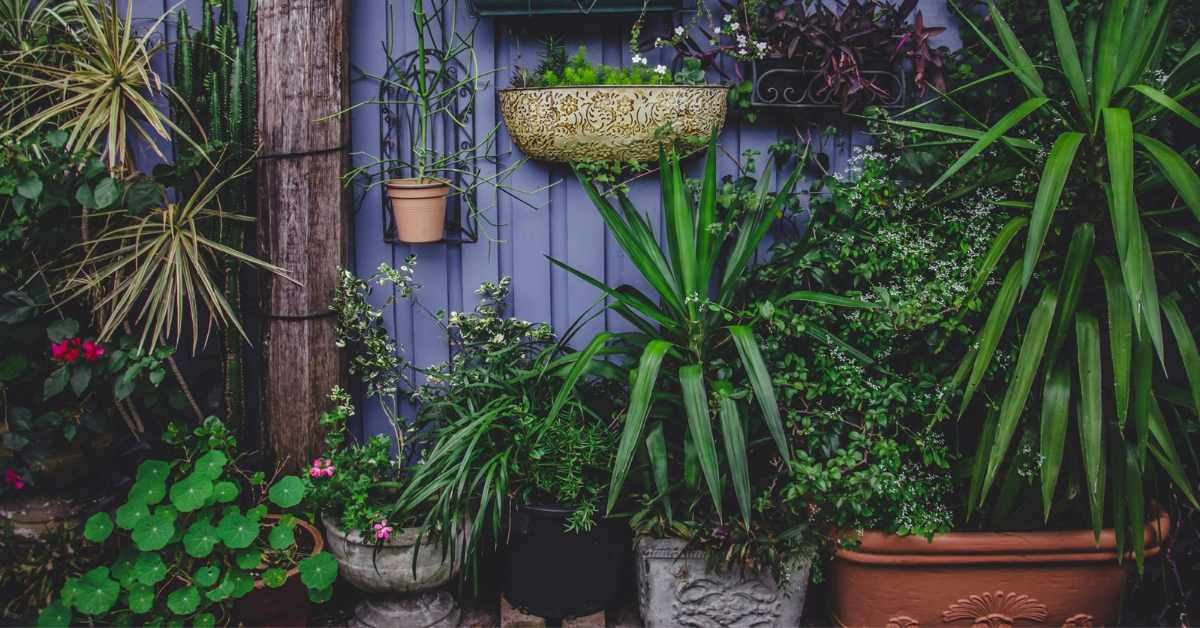Artificial Intelligence (AI) is changing many industries, including gardening. AI is making gardening more efficient, sustainable, and accessible in 2024. AI is transforming gardening by introducing advanced tools and technologies that enhance efficiency and precision. AI-driven systems help gardeners optimize watering schedules based on real-time soil moisture and weather data, preventing water waste and ensuring plants get the right amount of hydration. AI-powered image recognition helps detect pests and diseases early, providing timely alerts and treatment suggestions.
Predictive analytics offer insights into plant growth patterns and potential issues, aiding in effective garden management. AI automates routine tasks like weeding and pruning, while smart plant care systems provide personalized advice based on individual plant needs.
In this article, we’re going to talk about How Artificial Intelligence (AI) is changing gardening in 2024 with smart devices, predictive analytics, and robotic assistants.
Rise of Artificial Intelligence (AI) in Gardening
AI’s application in gardening began with the introduction of smart devices and systems that could automate routine tasks, such as watering and fertilizing. Over time, AI has evolved to include more complex functions, like monitoring plant health, predicting growth patterns, and even providing personalized gardening advice. AI-driven tools and systems can analyze extensive data on soil conditions, weather forecasts, and plant health to offer precise guidance for optimal plant care.
This technology aids gardeners in making well-informed decisions about planting schedules, irrigation, and pest management, resulting in healthier and more productive gardens. AI can automate repetitive tasks, freeing gardeners to focus on creative aspects of garden design and upkeep. By enhancing productivity and promoting sustainable practices, AI is making gardening more efficient and environmentally friendly.

Smart Gardening Devices
AI has led to the creation of smart gardening devices. These devices use AI to monitor and manage garden conditions. For example-
Smart Irrigation Systems
AI has greatly improved gardening, especially in irrigation. Traditional watering methods can either overwater or underwater plants, causing harm and wasting water. Smart irrigation systems use weather forecasts and soil moisture data to optimize watering schedules. This reduces water waste and ensures plants get the right amount of water. By automating irrigation, gardeners save time and resources while keeping plants healthy.
A smart irrigation system can delay watering if rain is expected or increase water supply during a heatwave to keep plants from wilting. These systems help plants stay healthy and save water.
Smart sensors
Smart sensors can measure soil moisture, temperature, and nutrient levels. This real-time data helps gardeners make better decisions about watering and fertilizing.

Here are five innovative smart gardening devices that can enhance your gardening experience:
- Moisture Meter: A convenient tool for checking soil moisture levels without requiring batteries. Just insert the probe into the soil for an instant reading, helping you prevent over and under watering.
- Weather Station: This digital weather station is a versatile tool that accurately measures both indoor and outdoor temperature and humidity, displaying readings in Celsius and Fahrenheit. It features a memory function to track the highest and lowest temperature and humidity levels.
- Sprinkler Timer: This is an advanced tool designed to streamline your garden’s irrigation. With six customizable irrigation modes, you can create specific watering schedules suited to the unique needs of your plants. Its intelligent design includes a built-in rain sensor, which allows the timer to adjust watering based on weather forecasts, ensuring efficient water use and preventing over-watering.
View More Gardening Devices- Click Here
Predictive Analytics
AI can analyze large amounts of data, which helps in garden planning and management. Predictive analytics can forecast gardening trends, identify potential issues, and recommend solutions. Predictive analytics is a branch of AI that uses data to forecast future outcomes. AI can analyze weather data, soil conditions, and plant growth patterns to predict the best planting times and crop varieties for a specific location. For example, AI can predict the best time to plant tomatoes in a particular region based on expected temperature fluctuations and daylight hours.
These insights help gardeners optimize planting schedules, improve crop yields, and reduce the risk of pests and diseases. AI can also identify early signs of plant stress or disease, allowing gardeners to take preventive measures.
Robotic Assistants
Robotic assistants are becoming common in gardens. Robot Assistants are machines that can perform tasks like weeding, planting, and harvesting. These robots use machine learning to identify and address plant-related issues efficiently. For example, weeding robots can distinguish between weeds and crops, removing unwanted plants without harming the surrounding vegetation.
Planting robots can automate the process of sowing seeds, ensuring precise spacing and depth for optimal growth. Harvesting robots can identify ripe fruits and vegetables, picking them at the perfect time to maximize freshness and flavour. By automating these tasks, robotic assistants free up gardeners to focus on more creative and strategic aspects of gardening.
Sustainable Gardening Practices
AI promotes sustainable gardening by optimizing resource use and reducing waste. AI-driven garden planning tools help gardeners design efficient layouts that maximize space and minimize resource consumption. These tools can recommend companion planting strategies, which involve growing certain plants together to enhance growth and deter pests.
AI also supports sustainable practices like composting and rainwater harvesting. Smart composting systems use AI to monitor and manage compost conditions, ensuring optimal decomposition and nutrient content. Rainwater harvesting systems use AI to predict rainfall patterns and optimize water collection and storage.

Indoor and Urban Gardening
As cities grow, indoor and urban gardening is becoming more popular. AI plays a crucial role in making these practices more accessible and efficient. For example, AI-powered vertical gardens optimize light, water, and nutrient delivery to plants, ensuring healthy growth in limited spaces. These systems can be integrated into homes, offices, and public spaces, bringing greenery to urban environments.
Indoor gardening systems, such as hydroponics and aeroponics, also benefit from AI. These systems use AI to monitor and adjust environmental conditions, ensuring optimal plant growth without soil. By automating these processes, AI makes indoor gardening more accessible to people with limited space or gardening experience.
For instance, AI-powered LED grow lights can adjust their intensity and spectrum based on the specific needs of the plants being grown. This ensures that plants receive the right amount of light at each stage of their growth, leading to higher yields and healthier plants. In vertical farming, AI systems manage the complex interactions between multiple plant layers, optimizing resource use and maximizing production in a small footprint.
Gardening for Mental Health
Gardening is known for its therapeutic benefits, and AI enhances these benefits. Gardening is a simple yet powerful way to boost mental health. AI-driven gardening apps provide personalized recommendations and support, making it easier for people to engage in gardening activities. Spending time with plants and nature improves physical fitness and reduces stress. These apps suggest suitable plants, provide care instructions, and offer tips for creating a relaxing and enjoyable garden space.
AI can also help create sensory gardens designed to stimulate the senses and promote mental well-being. These gardens include a variety of plants with different colours, textures, and scents, creating a calming environment. By using AI to design and manage these gardens, gardeners can create spaces that support mental health and well-being.
- Lowers stress by decreasing cortisol levels, helping you relax.
- Improves mood by increasing serotonin from sunlight, which helps fight depression.
- Encourages mindfulness by focusing your attention on the present moment.
- Provides light exercise, which releases endorphins and enhances well-being.
- Strengthens your connection with nature, leading to a calmer and happier mindset.
Global Collaboration and Knowledge Sharing
AI fosters global collaboration and knowledge sharing among gardeners. Online platforms and communities use AI to connect gardeners worldwide, allowing them to share experiences, tips, and resources. These platforms use AI to match gardeners with similar interests or challenges, facilitating meaningful connections and support.
AI-driven translation tools break down language barriers, enabling gardeners to access information and advice from diverse sources. By promoting global collaboration, AI helps create a more inclusive and supportive gardening community. From smart gardening devices and predictive analytics to robotic assistants and sustainable practices, AI is revolutionizing how we grow and care for plants. As AI technology continues to advance, we can expect even more innovative solutions that will shape the future of gardening.
In conclusion, AI is transforming gardening from a labour-intensive activity into a sophisticated, data-driven practice. The power of AI helps gardeners grow healthier plants, conserve resources, and contribute to a more sustainable future. AI is revolutionizing various industries by enhancing efficiency, personalization, and innovation. As we use new technology, we should also remember to stay connected with nature. Our gardens should be productive, but also beautiful, peaceful, and full of life.
